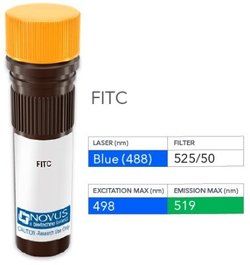DNA Antibody (121-3) - IHC-Prediluted, Novus Biologicals™
Manufacturer: Novus Biologicals
Select a Size
| Pack Size | SKU | Availability | Price |
|---|---|---|---|
| Each of 1 | NBP248325-Each-of-1 | In Stock | ₹ 45,568.00 |
NBP248325 - Each of 1
In Stock
Quantity
1
Base Price: ₹ 45,568.00
GST (18%): ₹ 8,202.24
Total Price: ₹ 53,770.24
Antigen
DNA
Classification
Monoclonal
Conjugate
Unconjugated
Formulation
10mM PBS and 0.05% BSA with 0.05% Sodium Azide
Host Species
Mouse
Purification Method
Protein G purified
Regulatory Status
RUO
Test Specificity
This monoclonal antibody is part of a new panel of reagents, which recognizes subcellular organelles or compartments of human cells. These markers may be useful in identification of these organelles in cells, tissues, and biochemical preparations. This monoclonal antibody recognizes the double stranded DNA in human cells. It can be used to stain the nuclei in cell or tissue preparations and can be used as a nuclear marker in human cells. This monoclonal antibody produces a homogeneous staining pattern in the nucleus of normal and malignant cells. Deoxyribonucleic acid (DNA) is a long polymer of nucleotides that is held together by a backbone made of sugars and phosphate groups. It holds the genetic instructions for the development and function of living things. DNA is crucial for living organisms, and all known cellular life and some viruses contain DNA. In eukaryotes, DNA exists in the cell nucleus, while in prokaryotes; DNA is located in the cytoplasm. In living organisms, DNA does not usually exist as a single molecule, but instead as a tightly associated pair of molecules in the shape of a right-handed double helix. Hydrogen bonds as well as forces generated by the hydrophobic effect and pi stacking hold the two DNA strands together. During replication and transcription, portions of the helix unwind and become single stranded. Protective proteins surround these single-stranded DNA. Double stranded (ds) DNA markers are useful tools in biology research and aid in the study of DNA behavior and characteristics.
Content And Storage
Store at 4C.
Isotype
IgG3 κ
Applications
Immunohistochemistry (Paraffin)
Clone
121-3
Dilution
Immunohistochemistry-Paraffin
Gene Alias
Double stranded deoxyribonucleic acid, Double stranded DNA, dsDNA
Immunogen
Nuclei of Burkitt's cells
Quantity
7 mL
Primary or Secondary
Primary
Target Species
Human
Form
Purified
Description
- DNA Monoclonal specifically detects DNA in Human samples
- It is validated for Immunohistochemistry, Immunohistochemistry-Paraffin.


